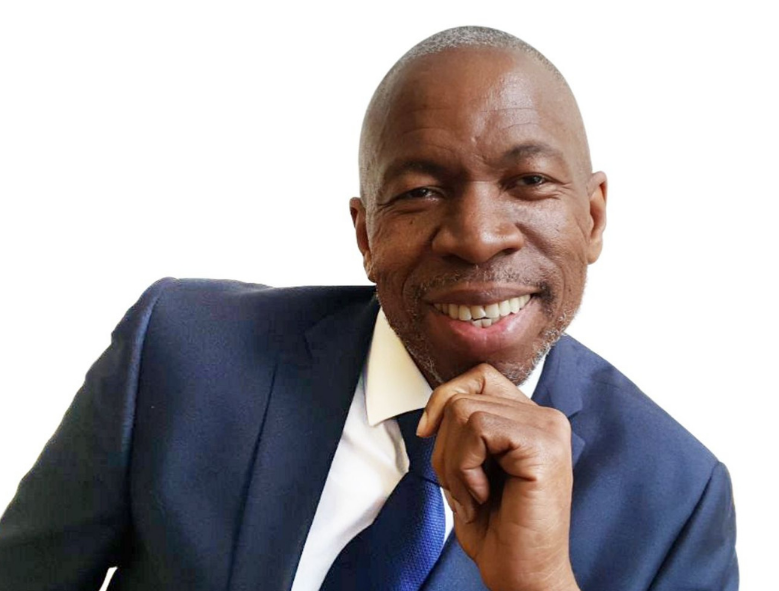For over 20 years, I’ve been helping small businesses start and grow, guiding entrepreneurs through the often intimidating process of turning their ideas into reality. One of the most insightful experiences in my journey came from a seemingly simple act: giving a woman £10 to start a business. While the amount was modest, the impact it had on both of us was profound. This real-life story encapsulates the essence of Adaptive Entrepreneurship—a concept that highlights the idea that most people already have the resources, ideas, and contacts they need to succeed. What they often lack is the confidence to take the first step.
The Power of Confidence and Belief
In my experience working with aspiring entrepreneurs, I’ve found that the most significant barrier isn’t a lack of resources but a lack of self-belief. The woman in this story, who I’ll call Sarah, didn’t need my £10 in a material sense—she was employed and could have easily sourced the money herself. What she truly needed was confidence and validation. By giving her £10, I wasn’t just offering financial support; I was showing her that someone believed in her potential. This small act of faith was the spark that ignited her entrepreneurial journey.
Adaptive Entrepreneurship teaches us that the most crucial resources are internal—our creativity, resilience, and initiative. External support, like my £10, can be instrumental, but it’s the internal shift in mindset that truly drives success. This is a lesson I’ve seen repeated countless times in my work: when entrepreneurs believe in themselves, they unlock a reservoir of potential that leads to success, regardless of the external resources at their disposal.
External Validation as a Catalyst
When Sarah received that £10, it wasn’t the money that made the difference; it was the validation that came with it. Sometimes, all an aspiring entrepreneur needs is a signal from someone they respect—a mentor, advisor, or even a friend—that they are on the right path. This validation can serve as a powerful catalyst, pushing them to take the next step.
In the context of Adaptive Entrepreneurship, this suggests that the role of mentors and advisors is not just to provide resources or answers but to offer encouragement and confidence. Entrepreneurs often have the skills and knowledge they need; what they lack is the belief that these assets are enough. My role, and the role of any mentor, is to reinforce that belief and help them see their potential.
The Illusion of Need vs. Actual Need
Sarah’s story also challenges a common misconception in entrepreneurship: the belief that starting a business requires significant external resources. While it’s true that some ventures need substantial capital, most do not. Sarah didn’t need my £10 to start her business—what she needed was the realization that she could do it with or without external help.
Adaptive Entrepreneurship is about understanding that the most critical resources are often those you already possess. External resources, like the £10 I provided, are merely tools to help unlock these internal assets. The real value lies in the confidence and initiative that the entrepreneur brings to the table. This is a crucial lesson for anyone looking to start or grow a business: before seeking external funding or resources, take stock of what you already have. You might find that you’re more prepared than you think.
The Empowerment of Small Beginnings
One of the most powerful aspects of Sarah’s journey is how it illustrates the concept of starting small and growing organically. With just £10, she was able to launch a business, pivot her model, and reinvest her profits to achieve greater success. This approach is central to Adaptive Entrepreneurship, which emphasizes starting with what you have and adapting as you go.
Starting small doesn’t just minimize risk; it also allows entrepreneurs to test their ideas, learn from their experiences, and make necessary adjustments. In Sarah’s case, her initial investment was modest, but it gave her the confidence and experience to grow her business step by step. This is a strategy I often recommend to the entrepreneurs I work with: start small, learn quickly, and adapt continuously. This method not only increases the chances of success but also builds resilience and adaptability—key traits for any entrepreneur.
Adaptive Entrepreneurship in Action
Ultimately, Sarah’s story is a textbook example of Adaptive Entrepreneurship. She didn’t wait for the perfect conditions or substantial capital; she took immediate action with what was available to her. Her ability to adapt—starting with a small amount of money, pivoting her business model, and reinvesting her profits—demonstrates the dynamic, responsive mindset that is central to this approach.
In my 20 years of helping small businesses, I’ve seen time and again that the entrepreneurs who succeed are those who are willing to adapt. They don’t wait for everything to be perfect; they start with what they have and make adjustments as they go. This is the essence of Adaptive Entrepreneurship: it’s not about having the perfect plan or the most resources; it’s about being flexible, responsive, and confident in your ability to succeed.
Conclusion
Sarah’s story isn’t just about starting a business with £10; it’s about understanding that the true value lies in the confidence, belief, and initiative that the entrepreneur brings to the table. External resources can provide a helpful push, but they are not the determining factor for success. The real power lies in the entrepreneur’s ability to adapt, use their existing resources creatively, and trust in their capacity to turn even the smallest of beginnings into something significant.
If there’s one takeaway from Sarah’s journey and the principles of Adaptive Entrepreneurship, it’s this: you already have everything you need to start your business. The key is to recognize the potential within yourself and to take that first step, no matter how small. The rest will follow.
FAQs
What is Adaptive Entrepreneurship and how does it help small business owners?
- Adaptive Entrepreneurship emphasizes starting with the resources you already have and adapting as you grow. It helps small business owners by encouraging them to leverage their internal assets like creativity and resilience, minimizing the need for significant external funding.
How can a small investment like £10 lead to business success?
- A small investment, such as £10, can lead to business success by providing the initial confidence and validation needed to take the first step. It’s not the amount that matters but the belief it instills in the entrepreneur, demonstrating that even modest beginnings can lead to significant growth.
Why is confidence more important than resources in entrepreneurship?
- Confidence is often more important than resources in entrepreneurship because it enables individuals to take action with what they already have. When entrepreneurs believe in their potential, they can unlock creativity and resilience, which are crucial for overcoming challenges and achieving success.
How can external validation impact an entrepreneur’s journey?
- External validation, such as support from a mentor or advisor, can significantly impact an entrepreneur’s journey by providing the encouragement needed to move forward. It acts as a catalyst that reinforces the entrepreneur’s belief in their own capabilities, often leading to decisive action.
What common misconceptions about starting a business does Adaptive Entrepreneurship address?
- Adaptive Entrepreneurship addresses the misconception that starting a business requires significant external resources. It highlights that many successful businesses begin with minimal capital, emphasizing the importance of leveraging existing resources and the entrepreneur’s initiative.
How does starting small benefit new entrepreneurs?
- Starting small benefits new entrepreneurs by allowing them to test their ideas with minimal risk, learn from their experiences, and make necessary adjustments. This approach fosters resilience and adaptability, which are key to long-term success.
What is the key takeaway from Sarah’s story in Adaptive Entrepreneurship?
- The key takeaway from Sarah’s story is that entrepreneurs already possess everything they need to start a business. The most important step is recognizing this potential within themselves and taking the first step, no matter how small. Adaptability and confidence are the true drivers of entrepreneurial success.
Author Bio:

For over two decades, I have dedicated my career to helping small businesses start and grow, guiding countless entrepreneurs on their journey from idea to reality. My experience has shown me that success in entrepreneurship isn’t just about resources—it’s about confidence, adaptability, and the willingness to start with what you have. Through real-life examples and proven strategies, I strive to empower others to unlock their potential and achieve their entrepreneurial dreams. I also have 300,000 Students on Udemy.com, 8 million Quora Views and over 450 Videos on YouTube.

